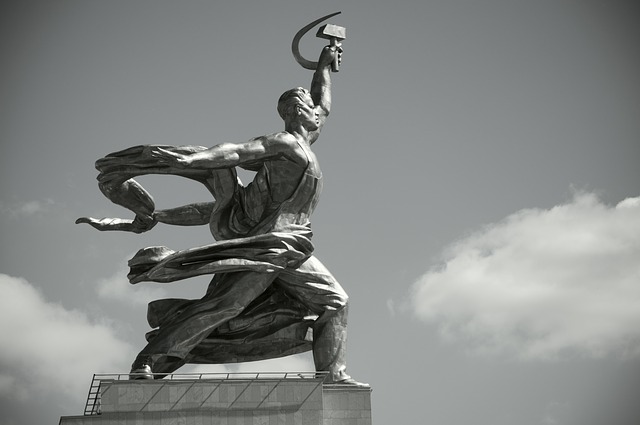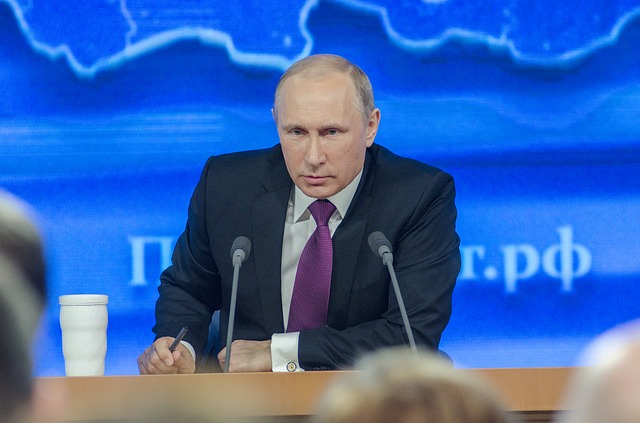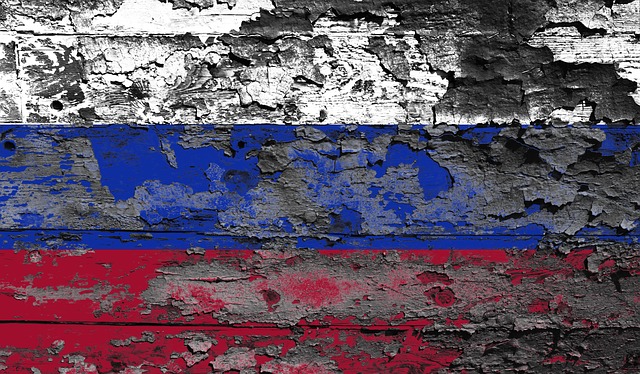
Russia's Economic Crisis
Read a summary using the INOMICS AI tool
In the early hours of the 21st of August 1991, a putsch in the Soviet Union against Mikhail Gorbachev failed, leaving three men dead and the country in a state of shock. The coup had been staged by members of the Soviet government who had taken issue with Gorbachev’s liberalising, democratising reforms, which he had been slowly putting into place over the previous few years. Those who had planned the attack then fled, and were all taken into custody within three days.
The coup was prevented mainly due to a campaign of civil resistance led by newly elected Russian President Boris Yeltsin. Yeltsin had been the first person in history to resign from the Politburo voluntarily a few years earlier in 1987, and this garnered him a reputation as a rebel and an anti-establishment figure. His involvement in stopping the August Putsch, as it became known, solidified his popularity in the Soviet Union. Although Gorbachev was restored to his previous position as General Secretary of the Communist Party, his power was vastly diminished, the event having destabilised the already-fragile political situation in the USSR. Yeltsin was hailed as a hero and remained President after the dissolution of the Soviet Union in December 1991.
After taking power, Yeltsin implemented a series of capitalist, post-Soviet reforms that privatised huge portions of Russia’s state-owned assets. Swept up in the rushing tide of selling were large portions of the industrial, energy, and financial sectors, marking the first time private ownership of property and enterprise had been legal since the Soviet Union’s creation in the early twentieth century.
Massive privatisation in Russia caused two related effects. First, inequality rose sharply, coinciding with a GDP collapse and a decline in industrial output. Second, much of the diminishing wealth of Russian enterprises was concentrated in the hands of a few wealthy individuals – oligarchs – who became even richer, with company stocks of state-owned enterprises being transferred to criminal gangs and mob bosses. Predictably, those who suffered most were the regular citizens of Russia.
Despite Yeltsin’s reputation as a charismatic rebel able to win over the hearts of the desperate Russian population, he wasn’t able to successfully run a market economy, and by 1999 his popularity had disintegrated to such an extent that he was forced to resign under intense internal pressure. Just how did it all go so wrong?
 Economic catastrophe
Economic catastrophe
According to David Satter in The Less You Know, the Better You Sleep: Russia’s Road to Terror and Dictatorship Under Yeltsin and Putin, the start date for Yeltsin’s reforms can be traced to January 2nd, 1992. On this day, Yegor Gaidar, Deputy Prime Minister, freed prices. His prediction, according to Satter, was that prices would increase between three and five times. But this isn’t what happened. Over the course of the next ten months, prices rose by a factor of nearly thirty. The results of this were that the money in regular people’s savings accounts, money that had in some cases been saved for decades, disappeared virtually overnight.
Hyperinflation had the added effect of being a perfect environment for a criminal class to take control of the markets and earn huge amounts of money. Due to a shortage of turnover capital as a result of inflation, production was paralysed. The regime’s answer to this was to issue government credits at rates of 10 to 25%. Instead of being used to pay workers’ salaries, though, they were deposited at banks, and bank officials and factory directors split the profits. Some got themselves export licences through bribing government officials, bought raw materials in roubles and then sold them abroad at world prices, making huge amounts of money in the process. Others acquired import permits after the government, fearing famine, began selling them in 1991. Food products were imported at 1% their real value, the rest of the cost subsidised by Western commodity credits, and a small group of traders made enormous sums of money from it: in 1992, import subsidies amounted to 15% of GDP.
A second scheme the government put in place was the distribution of vouchers, which were meant to represent ‘a citizen’s share of the national wealth’, valued at ten thousand roubles. Many Russians were uncertain what to do with these vouchers, and so sold them on the street for minuscule returns like a bottle of vodka or ten dollars. Some invested them in voucher funds, which turned out to be scams, or bought shares in their own factories. But organised crime groups realised they could use these vouchers to invest in industry. These groups, who collected thousands of vouchers over a few years, used them to secure around a third of the country’s industrial base, propelling themselves to unimaginable wealth.
These measures, implemented apparently in good faith, led to the collapse of the Russian economy. Russia’s GDP fell by 50% between 1992 and 1998. This was worse than the decline faced by the United States during the Great Depression. In the same period, industrial production declined by 56%. (Some estimates say these figures are askew: lack of industrial investment and the stopping of production of non-consumed goods may have distorted this figure. For example, the military sector, which has less weight in a nominally ‘free’ market, experienced a sharp drop in production. Regardless, the number is high.) Since then, things haven’t got huge amounts better: although Russian GDP peaked in 2013 at $2 trillion, it was back down to $1.2 trillion again in 2016 due to a drop in oil prices and exchange rates.
Crony capitalism and criminal gangs
 Russia remains in the top-third most corrupt countries in the world: as of 2018, 138th from 180. Corruption affects all aspects of Russian administration, and it has been argued that it ‘coincided with the illegal dispersal of the equivalent of billions of dollars from the Soviet state treasury into private accounts across Europe and the U.S.’ By 2011, the average bribe had increase to 236,000 roubles from just 9,000 in 2008, many times the inflation rate over the same three year period. Estimates of how much this corruption, judged by Russia’s famous ‘shadow economy’, cost the country in terms of GDP vary, from 3.5-7% as judged by the Russian government, to 48% as judged by the World Bank. That’s right: nearly half of Russia’s GDP is estimated by the World Bank to be caught up in the shadow economy. This economy, which functions through the bribing of government officials not only to vote the right way but simply to do their jobs in the first place, is made up of unreported salaries and astronomical rates of tax evasion.
Russia remains in the top-third most corrupt countries in the world: as of 2018, 138th from 180. Corruption affects all aspects of Russian administration, and it has been argued that it ‘coincided with the illegal dispersal of the equivalent of billions of dollars from the Soviet state treasury into private accounts across Europe and the U.S.’ By 2011, the average bribe had increase to 236,000 roubles from just 9,000 in 2008, many times the inflation rate over the same three year period. Estimates of how much this corruption, judged by Russia’s famous ‘shadow economy’, cost the country in terms of GDP vary, from 3.5-7% as judged by the Russian government, to 48% as judged by the World Bank. That’s right: nearly half of Russia’s GDP is estimated by the World Bank to be caught up in the shadow economy. This economy, which functions through the bribing of government officials not only to vote the right way but simply to do their jobs in the first place, is made up of unreported salaries and astronomical rates of tax evasion.
A recurring theme is that the Russian general population pays the biggest price of this corruption. Untenable rises in tariffs for housing, water, gas and electricity outpace the rate of inflation many times, and the main cause of these increases has been attributed to corruption among high-level officials. Public officials become richer and richer as a result. The money they make from these bribes obviously has to be laundered, and although an anti-money laundering initiative was put into place in 2013, it has been largely unsuccessful in preventing the practice.
One of the main reforms under Gorbachev was the legalisation of cooperatives, which became the only privately owned businesses in the Soviet Union. These cooperatives were successful, but led to a different problem: the police would only protect state enterprises. This meant that criminal gangs formed across the country which offered ‘protection’ in exchange for money, perhaps better described as extortion. By the time Yeltsin implemented his reforms, almost everybody was paying off someone for protection. But the gangs quickly realised these smaller markets weren’t the most lucrative way to operate. Instead, they began targeting the newly-wealthy business owners and bankers, many ending up victims of contract killings by gang members who wanted to take over these recently-formed enterprises. This criminality led to problems not only domestically but also with foreign businessmen. Trying to invest in a Russian business often led to dealings with gangsters who demanded money for protection, and any attempt to appeal to the authorities revealed that the gangsters had contacts in the police and the government that went all the way to the top.
Who takes the fall?
Despite still essentially being in competition with the West in much the same vein as it was during the Cold War (at least according to analyses of Russia’s exceptionalism by esteemed historian Stephen Kotkin) Russia still lags behind on some major indicators of country development. Ranking low on labour rights, social spending and tax policy, Russia placed only fiftieth on an international scale of equality, behind all of its Western neighbours and falling short of other former Soviet States like Georgia.
A European Parliament study of Russian equality confirmed these conclusions, finding that ‘nearly half of pre-tax national incomes goes to Russia’s top 10%’, and that among large countries it had the highest proportion of billionaires than any other. Further qualification was needed: ‘Given that these figures do not take account of the huge wealth (estimated at up to 75% of Russia’s GDP) hidden in offshore accounts, they probably understate inequality.’ (Emphasis mine.)
Demographic results of the Russian economic disaster were no better. The life expectancy of men dropped by more than six years between 1990 and 1994. In 1998, it sat at fifty-seven, ‘the lowest in the industrial world’, according to Satter. Many in the West refused to believe the death rate in Russia in the 1990s: the population dropped by 750,000 per year across the decade. In 1998, when the Russian state defaulted on $40 billion worth of debt, currency exchanges were updating their conversion rates from roubles to dollars by the hour. Estimates suggest that living standards dropped by 40% during the 1998 crisis.
The criminal mindset that pervaded life – criminality was everywhere, and it was no longer a surprise that society could only function through criminal means – meant that violence and death became much more common. Russians were much more likely to kill themselves or be murdered than in almost any other industrialised nation, and the main victims of this were regular people, a huge proportion of whom were already living in poverty. Many, unable to pay for their medical bills or for the bare essentials, simply gave up. Others were tricked into racketeering schemes which covered everything from religion to apartments, and plenty of these involved murdering those who became involved. To sedate the population, the Yeltsin government lifted all restrictions on the sale of alcohol, causing massive strain on a healthcare system that wasn’t receiving investment. Post-Soviet Russia may be improving on some fronts, but quality of life for the median Russian only really started getting better in the 2010s.
A bleak future

By the time Vladimir Putin came to power in 1999 in a period of relative economic growth, Yeltsin’s popularity ratings were astoundingly low. Putin was seem as something new, someone to counteract the squalor of the preceding decade. While the Russian economy has grown, the political system remains unstable and unfair, and though many are out of the poverty they were thrust into by the disintegration of the Soviet Union, more still feel dejected in a system which rewards criminality and violence.
Between 2014 and 2017, the Russian rouble collapsed, leading to another financial crisis. A decline in confidence in the Russian economy as a result of the fall in the price of oil in 2014, as well as sanctions imposed on Russia due to its annexation of Crimea, led to many investors selling off their Russian assets. Although since 2017 the Russian economy has been rebounding somewhat, 35% of all financial assets are owned by the 110 richest Russians. Moscow truly is the billionaire capital of the world: its levels of inequality are almost unbelievable for a country with the sixth-largest economy in the world.
One of the main results of the economic disaster of post-Soviet Russia is the government’s authoritarian – some would argue dictatorial – character. Yeltsin’s election during the breakdown of the Soviet Union in 1991, although not totally free and fair, was the closest Russia has come to proper democracy in over a century. The 1996 elections were riddled with electoral problems, such as Yeltsin using government money to fund his campaign, as well as huge amounts of media bias due to the fact that his government owned two of the national television channels and funded most independent newspapers. Media bias has plagued all subsequent elections throughout the 2000s, and although Putin was banned from running for a third term in 2008, a day after Dmitry Medvedev became President Putin was made Prime Minister, power remaining in all but name in his hands. And, after the 2012 election, the Organization for Security and Co-operation in Europe said ‘There were serious problems from the very start of this election. The point of elections is that the outcome should be uncertain. This was not the case in Russia. There was no real competition and abuse of government resources ensured that the ultimate winner of the election was never in doubt.’
Much of these problems stem from the economic crisis of the 90s. That being said, if Russia is going to sort itself out, the solution lies with more than just money: it needs to inculcate true democracy. Unfortunately, that doesn’t look like it’s going to happen any time soon due to the current leadership's insistence on holding on to power. Instead, the people will continue to suffer, and Russia will remain a country of corruption, criminality, and authoritarianism.
-
- Postdoc Job
- Posted 1 week ago
Postdoctoral Research Fellow Opportunity
At University of Notre Dame in Notre Dame, United States
-
- Conference
- Posted 1 month ago
Industrial Policies in a Globalized and Financialized World
Between 7 May and 8 May -
- Professor Job
- Posted 1 week ago
Assistant, Associate or Full Professor at Chung-Ang University
At Chung-Ang University in Seoul, South Korea












